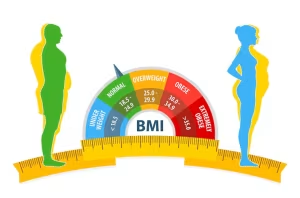
Understanding Gastric Sleeve Surgery: A Comprehensive Guide for Patients
Obesity affects millions of Americans and can lead to serious health conditions like type 2 diabetes, heart disease, and sleep apnea. When diet and exercise alone aren’t enough, bariatric procedures like gastric sleeve surgery can be life-changing options for many patients. As a family physician, I often counsel patients considering this important decision, and I’ve created this guide to help you understand what gastric sleeve surgery entails.
What is Gastric Sleeve Surgery?
Gastric sleeve surgery, also known as sleeve gastrectomy, is a weight-loss procedure that removes approximately 80% of the stomach. The remaining portion is shaped like a tube or “sleeve,” which restricts the amount of food a person can eat and helps them feel full sooner.
Unlike other bariatric procedures, gastric sleeve surgery doesn’t involve rerouting the intestines, making it simpler than gastric bypass. It works in two ways:
- By physically restricting food intake with a smaller stomach
- By reducing levels of ghrelin (the “hunger hormone”), which can decrease appetite
Who Is a Good Candidate for this Procedure?
Typically, gastric sleeve surgery is considered for patients who:
- Have a BMI of 40 or higher (severe obesity)
- Have a BMI of 35-39.9 with serious obesity-related health problems
- Have tried supervised weight-loss programs without success
- Are psychologically ready for the lifestyle changes required

Body Mass Index (BMI) is a calculation of a body fat percentage and overall weight status
Benefits Beyond Weight Loss
The benefits of gastric sleeve surgery extend far beyond appearance:
- Significant improvement or resolution of type 2 diabetes
- Reduced blood pressure
- Improved cholesterol levels
- Relief from sleep apnea
- Reduced joint pain
- Enhanced mobility
- Improved quality of life
Many patients report that these health improvements are even more valuable than the weight loss itself.
Understanding the Risks
Like any surgical procedure, gastric sleeve surgery carries risks that patients should carefully consider:
- Bleeding
- Infection
- Adverse reactions to anesthesia
- Leaks from the cut edge of the stomach
- Blood clots
- Strictures (narrowing of the sleeve)
- Nutritional deficiencies
- Acid reflux or GERD
I always emphasize to my patients that the decision to undergo bariatric surgery requires weighing these risks against the potential benefits and the risks of remaining obese.
The Surgery Process
The procedure itself typically takes 60-90 minutes and is performed laparoscopically through small incisions in the upper abdomen. This minimally invasive approach helps reduce pain and recovery time.
During surgery:
- The surgeon inserts a viewing tube with a small camera and other tiny instruments
- About 80% of the stomach is removed
- The remaining stomach is sealed creating a tube-like structure
- The smaller stomach is tested for leaks
Most patients stay in the hospital for 1-2 days after surgery.
Recovery and Lifestyle Changes
Recovery from gastric sleeve surgery requires significant lifestyle adjustments:
Diet progression:
- Clear liquids (1-2 days)
- Pureed foods (2-4 weeks)
- Soft foods (about 1 month)
- Gradual return to solid foods
Long-term changes:
- Smaller, protein-focused meals
- Careful chewing and eating slowly
- Avoiding empty calories from sweets and alcohol
- Taking recommended vitamins and supplements
- Regular exercise
- Ongoing medical follow-up
Is Gastric Sleeve Surgery Right for You?
If you’re struggling with obesity and related health issues, gastric sleeve surgery might be an option worth exploring. However, it’s not a quick fix or an easy solution. Success requires commitment to permanent lifestyle changes.
As your family physician, I’m here to help you navigate this decision. We can discuss your specific health concerns, evaluate whether you’re a good candidate, and connect you with specialists if appropriate.
Next Steps
If you’re interested in learning more about gastric sleeve surgery:
- Schedule an appointment for a thorough evaluation
- Consider attending a bariatric surgery information session
- Talk with patients who have undergone the procedure
- Research reputable bariatric centers
Remember that weight management is a journey, and I’m here to consult you about your best options including surgical intervention and other approaches to improve your health.
Resources:
Here are some trusted resources to help you learn more about gastric sleeve surgery:
- American Society for Metabolic and Bariatric Surgery (ASMBS)
https://asmbs.org/patients/bariatric-surgery-procedures#sleeve
Comprehensive information about bariatric surgery options, including gastric sleeve. - National Institute of Diabetes and Digestive and Kidney Diseases (NIDDK)
https://www.niddk.nih.gov/health-information/weight-management/bariatric-surgery
Government resource with evidence-based information about weight-loss surgeries. - Obesity Action Coalition
https://www.obesityaction.org/
Patient advocacy organization offering support resources and education. - Academy of Nutrition and Dietetics
https://www.eatright.org/health/weight-loss/your-health-and-your-weight/bariatric-surgery
Nutrition guidelines and resources for bariatric surgery patients. - Bariatric Surgery Support Groups
https://www.bariatricsurgery.support/
Online community for those considering, undergoing, or recovering from bariatric surgery. - BMI Calculator
https://www.nhlbi.nih.gov/health/educational/lose_wt/BMI/bmicalc.htm
Tool to calculate your Body Mass Index (BMI) to determine if you may qualify for bariatric surgery.
This blog post is for informational purposes only and does not constitute medical advice. Always consult with qualified healthcare providers about your specific situation.



